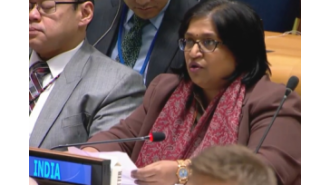Government imposes harsh penalties for anyone caught creating inappropriate deepfake videos.
New crimes are being added.

According to Refuge, a charity dedicated to supporting women, it is alarming to know that one-third of women have fallen victim to online abuse. In response to this disturbing statistic, the government has announced a new crackdown on predators who create or share explicit deepfakes without the consent of the person depicted. Those found guilty of this offense could face up to two years in prison.
The new legislation will introduce a range of criminal offenses specifically targeting the use of deepfake technology for sexual purposes. This includes taking or sharing intimate images without consent, as well as installing equipment with the intention of doing so. The move comes at a crucial time, as Metro's This Is Not Right campaign continues to raise awareness about the epidemic of violence against women.
In light of these developments, Victims Minister Alex Davies Jones has expressed her hope that the new laws will send a clear message to cowards who engage in image-based abuse that their actions will not be tolerated in our society. She also commended Metro for their campaign, which has played a significant role in addressing and bringing attention to this issue.
Davies Jones also highlighted the devastating impact that deepfake technology can have on its victims, robbing them of their dignity and safety. She emphasized the need for all of us to come together and take every possible action to better protect women and girls.
The proposed legislation also seeks to strengthen current laws that prohibit taking images without consent in certain situations. Cases such as upskirting were previously criminalized under the Voyeurism Act, which was passed in June 2018. However, the government now plans to repeal these existing offenses in order to expand their scope and provide greater protection for potential victims.
Writer Jess Davies, author of the book No One Wants To See Your D*ck, has been a vocal advocate for women's safety online. She has shared her own experience of cyberflashing and has been campaigning for women to feel safer in the digital world. According to Davies, intimate-image abuse is a national emergency that has inflicted significant and lasting harm upon women and girls, who often have no control over their digital footprint due to online misogyny.
The new offenses will be outlined in the Crime and Policing Bill, which is set to be introduced by the government when parliamentary time allows. Deepfake technology, which uses artificial intelligence to create realistic and often disturbing content, has become a growing issue in recent years. In fact, it has become such a concern that the Labour Party has promised to ban the creation of sexually explicit deepfakes in their election manifesto last year.
Some of the new offenses that the government plans to introduce include taking or recording an intimate photograph or film without consent or reasonable belief in it, taking or recording an intimate photograph or film without consent and with the intent to cause alarm, distress, or humiliation, and taking or recording an intimate photograph or film without consent or reasonable belief in it, and for the purpose of sexual gratification.
Baroness Jones, Technology Minister, has condemned these acts as not only cowardly but also deeply damaging, especially for women and girls who are disproportionately targeted. She reiterated that the government's new measures will send a strong message that creating or sharing these vile images is not only unacceptable but also a criminal offense.
1 Views










